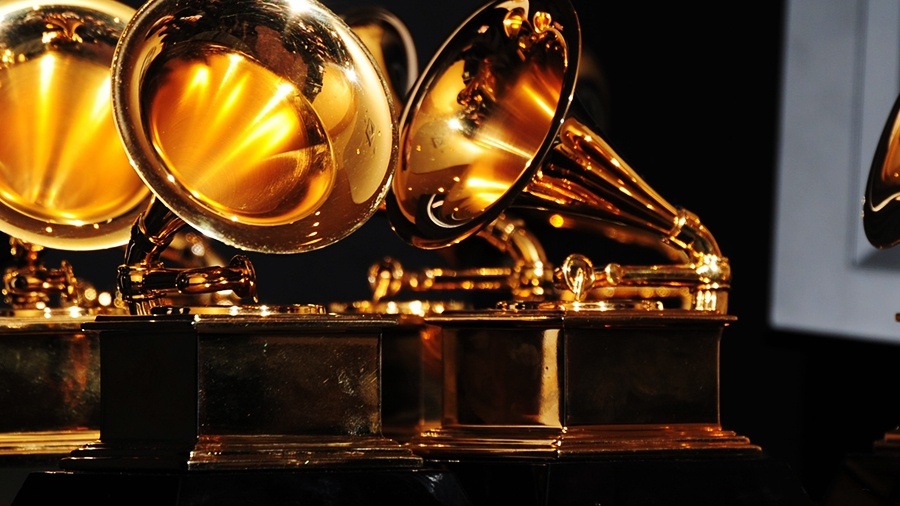The 62nd Annual Grammy Awards ceremony took place in Los Angeles Sunday evening. Here are excerpts from the winning albums in the classical categories:
Best Orchestral Performance
Norman: Sustain—Gustavo Dudamel, conductor (Los Angeles Philharmonic)
Sustain, a haunting orchestral soundscape by American composer Andrew Norman (b. 1979), was commissioned by the Los Angeles Philharmonic for the opening of its centennial season. This concert recording documents the piece’s October, 2018 world premiere. Sustain was a finalist for this year’s Pulitzer Prize in Music.
We explored this music in a previous post.
Best Opera Recording
Picker: Fantastic Mr. Fox—Gil Rose, conductor; John Brancy, Andrew Craig Brown, Gabriel Preisser, Krista River & Edwin Vega; Gil Rose, producer (Boston Modern Orchestra Project; Boston Children’s Chorus)
American composer Tobias Picker’s three act opera, Fantastic Mr. Fox, with a libretto by Donald Sturrock, is based on the comic children’s book by Roald Dahl. It was premiered by the Los Angeles Opera in 1998. Here is an excerpt from the Boston Modern Orchestra Project’s recording, with John Brancy singing the lead role of Mr. Fox:
Best Choral Performance
Duruflé: Complete Choral Works Robert Simpson, conductor (Ken Cowan; Houston Chamber Choir)
The French composer and organist Maurice Duruflé (1902-1986) wrote some of the twentieth century’s most beautiful choral music. This album includes Duruflé’s Messe “Cum Jubilo” pour choeur de barytons et orgue, Op. 11, Quatre Motets sur des thèmes grégoriens pour choeur a cappella, Op.10, Notre Père pour choeur a cappella, and the famous Requiem (in a version with organ accompaniment).
The Houston Chamber Choir, led by its artistic director and founder Robert Simpson, released Duruflé: Complete Choral Works last April on the Signum Records label. The professional chamber ensemble is joined on the recording by Canadian organist Ken Cowan.
We explored this recording in two recent posts, here and here. Let’s listen to another excerpt from the album. The Requiem’s Kyrie movement blossoms into beautiful lines of imitative counterpoint and soars to the most exalted climax:
Best Chamber Music/Small Ensemble Performance
Shaw: Orange, Attacca Quartet
The Attacca Quartet’s album, Orange, is dedicated to six pieces by the Pulitzer Prize–winning American composer, Caroline Shaw (b. 1982). (In a previous post, we heard a concert performance of Entr’acte, one of the works on this album). Regarding the string quartet, Shaw, a violinist, writes,
It has existed for hundreds of years, but there’s something kind of, for me, beautiful and ritualistic about coming back to that form. It’s something familiar, and yet you can keep on opening these doors and diving down these little rabbit holes. Just the simple changes of harmony and the shape of the bass line, and how that can create a whole world.
Caroline Shaw compares her collaboration with the Attacca Quartet with tending a garden:
Hints of past years’ growth remain in the soil, and so the new growth has been partially shaped by the old…The colors are vivid and familiar, and the shapes of the leaves follow a pattern that you seem to know until you don’t…This album is a celebration of the simple, immediate, unadorned beauty of a natural, everyday, familiar thing.”
Here is The Ellipse, which opens Shaw’s five-movement Plan and Elevation:
Best Classical Instrumental Solo
Marsalis: Violin Concerto; Fiddle Dance Suite Nicola Benedetti; Cristian Măcelaru, conductor (Philadelphia Orchestra)
The great jazz/classical trumpet player Wynton Marsalis had the violinist Nicola Benedetti’s sound in mind when he wrote his Violin Concerto in D in 2015. In an interview with NRP, he drew parallels between the violin and the African-American tradition, noting that many slaves were fiddlers. The Concerto’s opening movement, Rhapsody, contains hints of the blues. It is music filled with haunting mystery and shimmering, dreamlike beauty:
Best Classical Solo Vocal Album
Songplay Joyce DiDonato; Chuck Israels, Jimmy Madison, Charlie Porter & Craig Terry, accompanists (Steve Barnett & Lautaro Greco)
This album, featuring American mezzo-soprano Joyce DiDonato, is a free-spirited collaboration which “unites world-class musicians from the varied worlds of opera, jazz and tango in the pure pleasure of improvisation, experimentation and exchange.” Here is a contemplative performance of Rodgers and Hart’s With a Song in My Heart:
Best Classical Compendium
The Poetry of Places Nadia Shpachenko; Marina A. Ledin & Victor Ledin, producers
The Poetry of Places features contemporary works performed by Ukrainian pianist, Nadia Shpachenko.
World Premiere recordings of works for solo piano, for two pianos, percussion, electronics, voice, and toy piano in a fascinating mélange inspired by great architecture and places. Ensemble works recorded with Los Angeles Philharmonic Orchestra pianist Joanne Pearce Martin and Los Angeles Percussion Quartet artists Nick Terry and Cory Hills.
Sí an Bhrú, by Los Angeles composer Jack Van Zandt, combines the solo piano with electronics to enter a new and atmospheric sound world. The piece is divided into titled sections which are played without pause: Time and the River; Stonecutting; Spirals and Zigzags (Homage à Boulez); Dance of Renewal; Eternal River; Starlit Night.
Best Contemporary Classical Composition
Higdon: Harp Concerto Jennifer Higdon, composer (Yolanda Kondonassis, Ward Stare and The Rochester Philharmonic Orchestra)
In a previous post we explored this album, titled American Rapture. It contains two world premiere recordings—Jennifer Higdon’s Harp Concerto (2018) featuring the American harpist Yolanda Kondonassis, and Patrick Harlin’s Rapture (2011), an orchestral showpiece inspired by the terrifying and awe-inspiring exploration of the world’s deepest caves. In between these youthful pieces is Samuel Barber’s Symphony No. 1, a monumental mid-twentieth century work which unfolds in a single movement. All of the music on this album was recorded live in concert at Rochester’s Kodak Hall (formerly Eastman Theatre).
Here is the Harp Concerto’s third movement, Lullaby:


I tried unsuccessfully to post a comment to this morning’s email on Jerome Kern and All The Things You Are.
I’m sorry to hear that, Mary. I’m not sure what could have gone wrong, but I hope everyone will let me know if they have similar problems. Please try again and let me know if you are not successful.